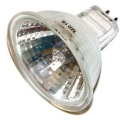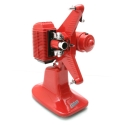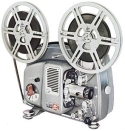While there are many services available to help you with your own 8mm film transfer, you might want to consider purchasing your own
8mm film scanner in order to develop your own digital copies.
Advantages and Disadvantages
There are a number of reasons you might consider doing this yourself, rather than hiring a professional company:
- Large Volume: If you have an especially large volume of 8mm (or other sized) film, you might want to consider getting
your own 8mm film transfer, as you may save money in the long run. - Your Own Business: If you are involved in photography anyway, you may find that you can make some extra money from
those who wish to transfer their own films to digital format (a process also called “telecine”). - Do-It-Yourself: For the true hobbyist, it may be the process of transferring the film itself that provides the attraction, so cost isn’t really the issue (well, within reason).
However, there are a number of disadvantages to getting an 8mm film scanner:
- Price: Unless you are making a large number of scans, it will be quite a bit cheaper for you to use a professional service.
- Damage: It takes some practice to learn how to make 8mm film scans without damaging the original film or negative. In the meantime, you might damage your film. Plus, all transfers create a bit of wear on your film or negative in any case.
- Time: Scanning takes time (especially if you do it frame-to-frame). A professional service will only consume as much time as it take you to pack your parcel or drive over.
Different Types of 8mm Film Scanners
First, it’s worth noting that there aren’t really 8mm film scanners per se. Instead, there are generic film scanners that work with Super 8 film and often slides as well. There are frame-to-frame scanners available that work on 16mm film and slides as well (note that 35mm film is an entirely different beast).
- Frame-to-frame scanning is actually the highest-quality scanning that is currently available, but its downside, as you might imagine, is that it is very slow. Frame-to-frame scanners can work either from a finished film or a negative. Each frame is then individually scanned or photographed, and then turned into an image which is then turned into a film. Because it is done frame-to-frame, there is little flickering and you are guaranteed to capture each frame.
- Photographing your film involves actually taking photographs of each frame on the film or negative itself (if it photographs the negative, this is digitally turned into a reverse-negative. This is slightly different from frame-to-frame scanning, as it is done using a digital camera, rather than a scanner, but the principle is the same. Photographing can also be done in real time, though machines that do this are expensive.
- Projection-photography is actually the most common type of 8mm film scanner available, and what it does is project your original film and then photograph the image. This is done within the machine itself, to correct for the image loss one would get by simply projecting your image on a screen and setting up your digital movie camera.
Models of 8mm Film Scanners
Unfortunately, there really isn’t a lot of demand for 8mm film scanners. Currently, many are made by amateur film lovers, and sold from anywhere from $1200 to $5000 online. One of the most common brands is called “Cinemate”, and some of those models can be found on this website. The Cinemate scanners come in a wide range of models, and you can ask for a demo CD to see the quality that you can expect.
There are, however, a couple of out-of-production professional pieces of equipment that are sometimes available on EBay, and will usually cost around $1500 (but it’s EBay, so prices vary widely). The two companies that produced these companies are called the “Elmo Telecine Transfer Machine” and also the “Goko Telecine Player TC-20”. Both of these will transfer your film to digital. The Goko player only films at 18 fps (frames per second), however, and standard 8mm is at 20 fps. This means that your film will be a little slower, and it will unsynch the sound if you are transferring a sound film. If you are looking for a professional telecine player, I therefore recommend the Elmo.



